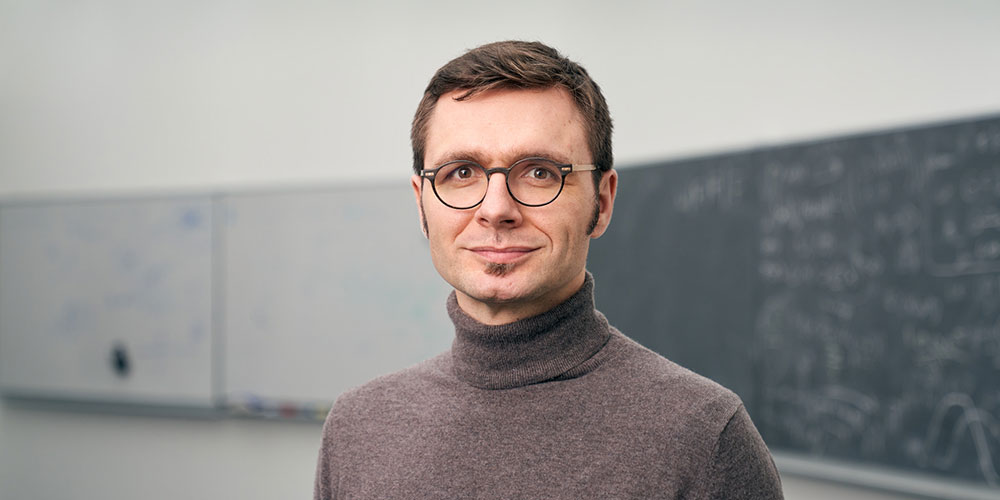“Fantastic research is happening with the help of data analytics”
The Center for Data Analytics at the University of Basel helps researchers make the most of their data using cutting-edge techniques such as deep learning. The director of the newly founded center, Professor Ivan Dokmanić, explains what his team wants to achieve.
22 February 2021 | Yvonne Vahlensieck
Mr. Dokmanić, has the work of the Center for Data Analytics already started?
We have been setting up the center for about a year now. We hired the first group of analysts and already have several ongoing projects. One is the characterization of liver tumor cells with researchers from the Department of Biomedicine. Another collaboration is with the Department of Social Sciences: we are helping them to map and visualize the socio-economic impact of the Indian film industry in Europe and India. We have also reached out to several people who are doing high-impact research and have been contacted by researchers who are interested in collaboration, among them some start-ups from the region. At the same time, we are busy developing tools and workflows for a variety of machine learning, artificial intelligence, and data visualization methods in close collaboration with our colleagues at sciCORE—the Center for Scientific Computing at the University of Basel.
How do you select the projects you support?
There is a list of criteria. One thing we look at is the potential impact of the research. We want to select projects with high potential impact. We also try to match projects to the expertise of our analysts and at the same time make sure that our collective know-how keeps expanding. Formally, one of our analysts is a specialist for the natural sciences and the other for the humanities, but in reality, we are collectively optimizing to work on interesting projects.
Who can particularly benefit from your assistance?
I think especially the humanities can benefit from working with us. While physicists and chemists have more access and knowledge about computation and data, people in the humanities are often sitting on piles of extremely exciting data but may lack awareness of the methods which can address their research questions. We want to identify these people and connect them with our data specialists. You could say that part of our mission is to evangelize the data-driven way of doing things.
Your team can provide cutting-edge data analytics. What kind of methods do you use?
In recent years, some fantastic research is happening with the help of data analytics across the board. A lot of our work is related to machine learning and deep learning in particular. We have expertise in developing artificial neural networks that can process all kinds of data from text and speech to images and video. But we also want to help with the fundamentals like solid statistics. Another thing we can do is visualize messy data in a way that helps researchers reason about it and extract findings, as well as present it to the public. In our ideal project, we would be included in the research early on so that we can give feedback on data collection, then process it, help figure out what matters and find the best way to visualize it.
How could the future collaboration between your analysts and the research groups look like?
For us, this is really a scientific endeavor. That means, we are offering a service, but we also want to be involved in the science rather than being guns for hire to run specific analyses. If someone already knows exactly what sort of analysis they want and they just need someone to do the pedestrian work then we are probably not the right people to partner with. One important mode of collaboration is via the notion of embedded analysts: we are keen on collaborating on funding applications as the “data” partner, and in general, we can help with preparing the data-related parts of grant proposals. The data analysts funded by these proposals could be hosted in CeDA which is a triple win for the principal investigator, the analyst, and us.
Center for Data Analytics
The Center for Data Analytics CeDA is funded by the University of Basel and offers cutting-edge data analytics for University researchers and their partners. It also aims to raise awareness of the potential of data-driven science. Its director, Ivan Dokmanić, is a professor for data analytics at the Department of Mathematics and Computer Science where he also conducts research on theory and applications of scientific machine learning.
The other members of the management team are the Coordinator Geoffrey Fucile, a bioinformatician at the Center for Scientific Computing, and Gerhard Lauer, Professor for Digital Humanities at the Digital Humanities Lab. Currently two analysts are working on three projects with several more projects already in the pipeline.



